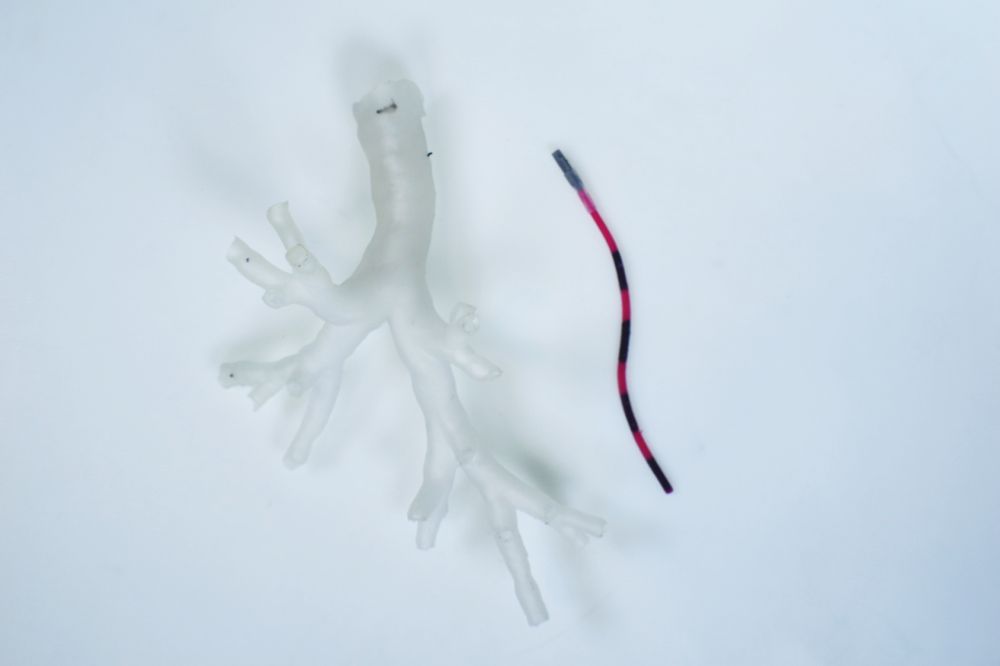Researchers at the University’s STORM Lab have developed an ultra-soft tentacle controlled by magnets, measuring just 2 millimeters in diameter. This innovative technology has the potential to revolutionize the treatment of lung cancer by providing a more accurate and less invasive approach. The magnetic tentacle robot was tested on a cadaver’s lungs and demonstrated the ability to travel 37% deeper than standard equipment, resulting in less tissue damage.
The research, funded by the European Research Council, has been published in Nature Engineering Communications. Professor Pietro Valdastri, Director of the STORM Lab, highlighted the advantages of this approach, including its specificity to anatomy, softness, and shape-controllability via magnetics. Lung cancer, with its high mortality rate, often requires invasive surgical intervention, leading to tissue removal and potential impact on lung function. The magnetic tentacle robot could enable less invasive treatment, targeting only malignant cells while preserving healthy tissue and organ function.
The team plans to collect data for human trials. Additionally, the STORM Lab researchers have explored the use of two independent magnetic robots for endonasal brain surgery, allowing one robot to move a camera and the other to control a laser for tumor removal. These silicone-based devices minimize tissue damage and are guided by magnets mounted on robotic arms outside the patient’s body. The successful trials on a skull replica demonstrate the potential for collaborative work between magnetic robots in confined areas of the human anatomy.

